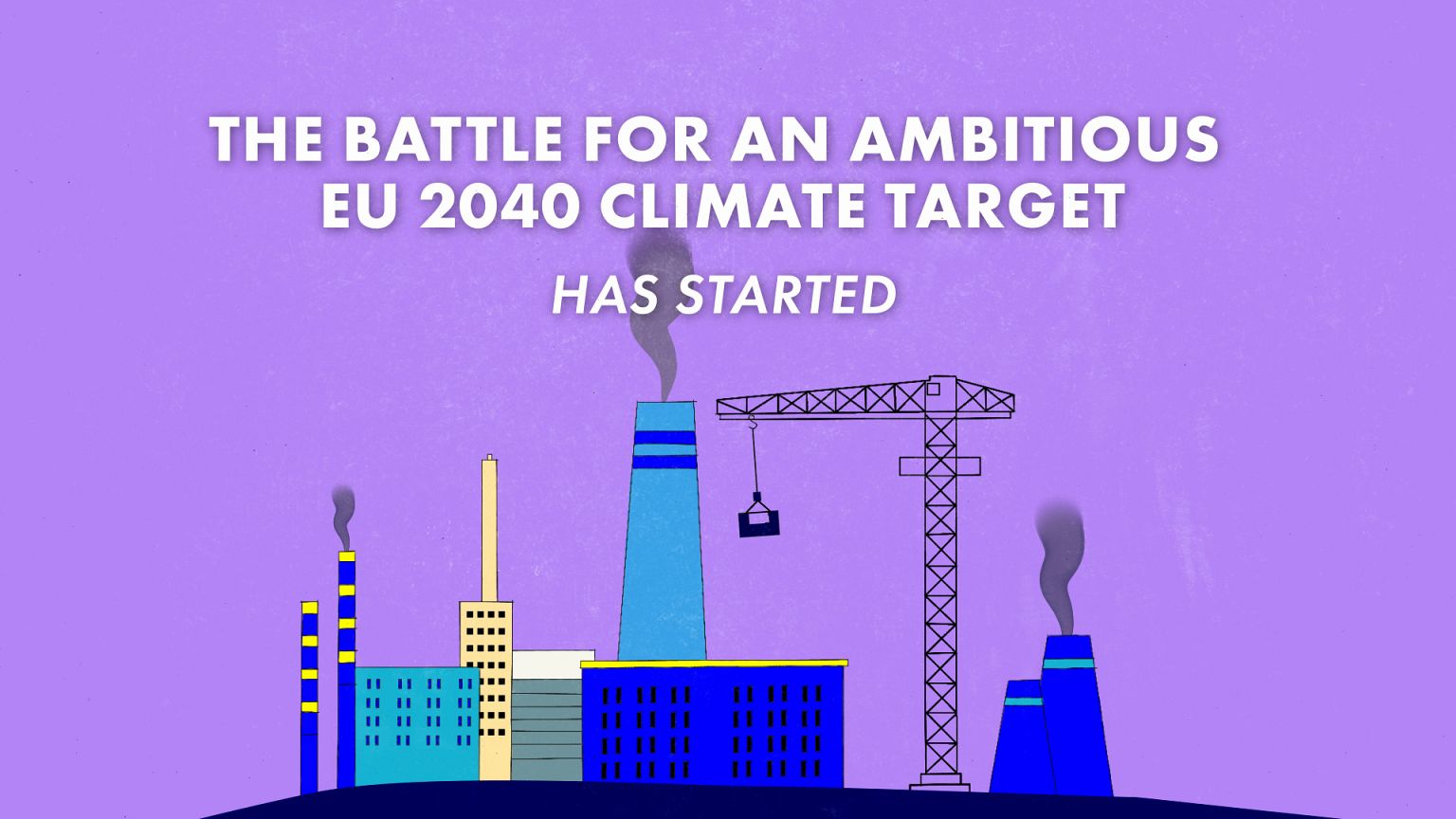Top Stories
EU Proposes 90% Emission Cuts by 2040 Amidst Heated Debate

UPDATE: The European Commission has just announced a controversial proposal to cut emissions by an ambitious 90% by 2040, igniting fierce criticism from lawmakers and environmental activists across the EU. This significant target aims to bolster the bloc’s standing as a climate leader while addressing economic competitiveness concerns.
The debate centers on whether the 27-country bloc can successfully pursue aggressive climate goals without jeopardizing its economic strength. Under its Climate Law, the EU previously pledged to achieve climate neutrality by mid-century, with an intermediate target of a 55% reduction in greenhouse gas emissions from 1990 levels by 2030.
In July, the European Commission initiated a review of this landmark legislation, which now includes the proposed 2040 target. The plans also suggest allowing EU nations to engage in international carbon markets, enabling them to pay external countries to offset their emissions. Euronews reporter Gregoire Lory stated, “NGOs are saying this is nonsense because it runs against scientific opinion.” Critics argue that this approach undermines genuine climate action and could have dangerous implications.
The proposal also introduces flexibility measures, such as carbon removal technologies—both nature-based and industrial. However, Lory pointed out that these industrial solutions are not yet sufficiently developed for large-scale implementation. Additionally, the plan proposes inter-sector compensation, allowing sectors that exceed reduction targets to assist those lagging behind.
The urgency of the situation is heightened as attempts to expedite the review process through the European Parliament were blocked by far-right groups and the European People’s Party (EPP). Lena Schilling, a Green MEP from Austria, expressed frustration, stating, “Now we need to get EPP on board to work together constructively.”
Adding to the complexity, French President Emmanuel Macron urged a delay in the proposal earlier this year, citing a need for more time to secure a European compromise that would not stifle the bloc’s global competitiveness. Schilling criticized Macron’s position, asserting, “We can’t solve the climate crisis alone. We need China, the US, India, and others. Trying to bail out before announcing our NDCs is irresponsible and dangerous.”
As the EU grapples with these tensions, the focus seems to have shifted away from climate action. The recent proposal for a €2 trillion budget spanning 2028-2034 emphasizes competitiveness and defense over environmental initiatives, raising concerns about the bloc’s commitment to addressing climate change.
With critical COP negotiations scheduled to take place in Brazil this November, the stakes are higher than ever. Lawmakers and environmentalists alike are watching closely to see if the EU can strike a balance between leading in climate policy and maintaining its economic strength.
The coming days will be crucial as discussions continue, and the EU’s decisions may have lasting impacts on both its climate strategy and its role on the global stage. Stay tuned for further developments on this urgent issue.
-

 Top Stories3 months ago
Top Stories3 months agoTributes Surge for 9-Year-Old Leon Briody After Cancer Battle
-

 Entertainment4 months ago
Entertainment4 months agoAimee Osbourne Joins Family for Emotional Tribute to Ozzy
-

 Politics4 months ago
Politics4 months agoDanny Healy-Rae Considers Complaint After Altercation with Garda
-

 Top Stories4 months ago
Top Stories4 months agoIreland Enjoys Summer Heat as Hurricane Erin Approaches Atlantic
-

 World5 months ago
World5 months agoHawaii Commemorates 80 Years Since Hiroshima Bombing with Ceremony
-

 Top Stories3 months ago
Top Stories3 months agoNewcastle West Woman Patricia Foley Found Safe After Urgent Search
-

 Top Stories5 months ago
Top Stories5 months agoFianna Fáil TDs Urgently Consider Maire Geoghegan-Quinn for Presidency
-

 World5 months ago
World5 months agoCouple Convicted of Murdering Two-Year-Old Grandson in Wales
-

 World5 months ago
World5 months agoGaza Aid Distribution Tragedy: 20 Killed Amid Ongoing Violence
-

 World5 months ago
World5 months agoAristocrat Constance Marten and Partner Convicted of Infant Murder
-

 Top Stories4 months ago
Top Stories4 months agoClimbing Errigal: A Must-Do Summer Adventure in Donegal
-

 Top Stories4 months ago
Top Stories4 months agoHike Donegal’s Errigal Mountain NOW for Unforgettable Summer Views









